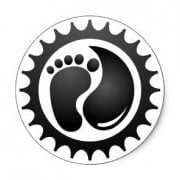Search the Community
Showing results for '"weight gain"'.
Found 15,849 results
-


Feeling a bit out of control
James Marusek replied to Darlynn's topic in General Weight Loss Surgery Discussions
There are two phases to weight loss surgery - the Weight Loss Phase and the Maintenance phase. Because you had surgery around 3 1/2 years ago you are most likely in the Maintenance phase. This is the approach I used in the Maintenance phase. http://www.breadandbutterscience.com/Surgery2.pdf It is common to have some limited weight gain after gastric bypass surgery. They call it a 20 pound bounce. The important thing is not let go beyond it. According to my nutritionist, meals should consist of equal parts of protein, fats and carbs after the first couple years post-op. Snacks should be limited to primarily whole food options: nuts, natural nut butters, fruits, veggies, boiled eggs, string cheese, yogurt with berries and almonds, tuna pouches. Avoid processed packaged foods as much as possible. Also do not expect to lose weight at a rate similar to right after surgery. Generally if you gained the additional weight over a couple years, then it may take a couple years of watching what you eat to get back down. -


When did you weigh yourself for the first time Post-Op?
mama3beartn replied to lk2813's topic in POST-Operation Weight Loss Surgery Q&A
I weighed the day I got home. I had this daily graph I had to fill out. It required me to weigh daily. I didn't have any weight gain or swelling from surgery so I did a steady pound a day for the first two weeks and then I hit the popular stall that is very common around week 2/3 after surgery. I stayed that weight for almost three weeks and it started going down again. But I did lose inches during those three weeks. It doesn't bother me to weigh and see the fluctuation and stalls. There is a 2 - 3 lb body fluctuation that one can gain over night just from water and stuff. Our nutritionist gained 2lbs in 5 minutes just by drinking 5 glasses of water. It was his way of showing us not to let those little gains bother us. As long and you know your are following your plan correctly and as long as the clothes are getting loser and your feeling better that is what matters. I haven't felt this good in years. I'm ecstatic. And I still have 100lbs to go. LOL I can't even imagine. -
I took the Effexor immediate release without any problems after my RNY. My only problem was that it made me gain weight like mad! I ended up changing to a different med. it wasn't worth the trade off for the weight gain.
-


I'm never going to get this surgery---discouraged :(
dreamingsmall replied to Sfunk's topic in Gastric Sleeve Surgery Forums
Unexplained weight gain as in.. You were just eating salads and the weight piled on ? Did they find a reason for this unexplained weight gain? After wls you eat about 800+ calories. If you are 100% only eating 800 calories and not losing a lb what do you feel weight loss surgery will help with? ...Unless....Your possibly eating more than 800 calories...Sometimes.. And admittedly need help with portion control like the rest of us. For Me the first step was being honest with myself. Yes I ate low calorie all day. Higher than I needed other times. It adds up. But only you know the truth. If you have a medical condition causing you to gain when you are eating in a deficit that needs to be addressed before WLS. No judgment just trying to help. Sent from my Swift 2 using BariatricPal mobile app -


I'm never going to get this surgery---discouraged :(
Sfunk posted a topic in Gastric Sleeve Surgery Forums
Long story short, I have been going to my doctors since November of last year when I was 255 with concerns about unexplained rapid weight gain. Now, its is August, I have been working with the weight and wellness center since March , but I have gone up to 284 and I am just getting zero support from any medical professional. They keep telling me to cut my calories, exercise, etc etc. I am already at 800-1000 calories a day, and swimming for an hour 6 days a week. I have met my insurance requirement of 6 months but the doctors at the weight and wellness center will not even see me until I've lost 10% of my weight. I have followed everything they wanted me to do, and done all the tests. Yet I leave every appointment crying because I am not meeting their weight loss expectations. Feeling completely discouraged and unsupported. -


Leaving dieting behind
bellabloom replied to bellabloom's topic in Tell Your Weight Loss Surgery Story
I also want to add something that I have found to be true based on my experience. At first Intuitive Eating was really hard and scary. I thought I was going to blow up huge for SURE. I had to be so brave to even try it. At first I was negotiating with myself a lot. Like... I will try it for a week so I can enjoy my vacation.. or I'll try it but if I gain weight at all I will resume dieting. In the beginning I only managed short periods of time eating freely and then would restrict again. And it was like that for some time. But!! But. What happens is ... as you continue, the times where you let go- they are sooo good. You aren't overeating or binging, you are just eating enough.. and it feels soooooo good in your mind and body, that after awhile it feels more worthwhile than being super skinny or pleasing society or some stifling ideal. Being fed right is an amazing feeling, and it becomes harder and hard to go back to restrictive food behaviors. Over time my stretches became longer and longer and as I sought out more support and also saw my body remaining in a stable weight and started working on my body dysmorpia... everything just fell into place more and more. Suddenly you start to realize, wow I haven't thought about food intake or dieting in awhile! And wow what a freedom that is. Lifting that oppressive mindset and hunger out of your world is like coming out of a cloud. Life is so full and beautiful. Weight isn't what defines your happiness- health is. Mental and physical health. Food will make or break you for sure. Too much and your body and mind will suffer. Too little and your body and mind will suffer. It takes the right amount to be truly happy and ONLY YOUR INDIVIDUAL METABOLISM AND BODY can determine what that amount should be. I'm not writing these feed to threaten or undermine you. I'm not bragging about my success or weightloss. I'm offering out a hand to those who feel they want or need to try something different. If dieting works for you for now, great. But know that should you want something else, there is this. I want to give others what I have found and share my experience. I truly believe, in fact I KNOW dieting cannot be a sustainable practice for lifelong happiness. With dieting there will always be the highs of weight loss and the deep lows of weight gain. With intuitive eating, there is just consistency and underneath that freedom and joy. -


Leaving dieting behind
bellabloom replied to bellabloom's topic in Tell Your Weight Loss Surgery Story
Hey all! Update on me. (And thank you all who have been supportive by the way) I'm doing AWESOME. My weight is extremely stable. I don't weigh myself if I can avoid it (I find numbers upsetting and triggering and pointless) but my clothes all fit and my measurements are the same. That said it's honestly a non issue because I don't care if I get smaller or bigger or whatever because weight just isn't what defines my happiness anymore. I've just finished my second round of plastic surgery in Mexico. I had a lower face lift (for a slight turkey neck and early jowling) and a Brazilian butt lift and I had fat added to my hips to give me a more womanly shape. I LOVE the results I am seeing. In my eating disordered days I always wanted a stick straight and boy like model body. I have changed that mindset and am embracing my Latina heritage and embracing what my body is more inclined to look like. Through the surgery I continued eating intuitively and my recovery has been wayyyy easier this time. I feel it is because I am much healthier and my body is well nourished and strong. I have repaired a lot of the damage dieting did to me. I'm in a new relationship and he has been super supportive. In my dieting days I would tend to pick abusive assholes. This time I have picked someone who supports my choices and builds me up. It's amazing what a well fed mind can do!! I don't live on the edge any more and I don't keep people around who encourage my self esteem and body image issues. My eating behavior has not changed. Once in awhile I will loosely tally up my calories (sadly I still have every single item of food calories burned into my brain) and I find I eat around 2000-3000 calories a day. Usually right around the 2500 mark. I don't do this by thinking about it. That just seems to be what my body needs to be satisfied. What funny is I actually TRIED to put on some weight for my Brazilian butt lift and I FAILED. I don't have much fat in my body, which they needed for the surgery, so I tried to eat more by adding in breakfast and higher calorie foods for about a month before my surgery. I didn't do anything that felt harmful or excessive- just encouraged myself to always eat breakfast, a lot of avocado, adding cheese and mayo more, that sort of thing. And.... Nothing happened. No weight gain. In fact it felt like I LOST weight. [emoji23] In my dieting days with a wrecked metabolism I was able to put on 5lbs in 3 days!!! My body is now at its set point and it just won't allow me to change that so easily. God knows what I would have to do to gain weight at this point. Anyway my butt lift isn't as big as I would have liked it but it still looks great! A few weeks ago I also went on a cruise with my kids. It made me extremely sad to see all the people on the boat gorging themselves and looking so miserable. I've been on 3 cruises in my life. The first one I was 27 thin and bulimic- I threw up everything I ate on the ship and was super sick. The second one I was 33 and obese. I ate till my stomach was going to pop and was super miserable and depressed. This time I'm 37 and a healthy intuitive eater. I ate whatever I wanted to satisfy my hunger and tried not to worry about the food at all. And I was happy. Roughly what I eat: Bagel with avocado for breakfast (Or something like an omelet with tons of Ketchup my favorite food) Maybe some Thai food or tacos or fried calamari for lunch, or salad and sandwich (usually eat out for lunch) Dinner I eat out a lot too or at home rarely. I like all kinds of restaurants. I don't like too cook, it takes up too much time and I work a lot. I like Italian, Mexican, sushi, salads... whatever. [emoji4] so I get a salad and an entree. Entrees are so crazy huge, I almost always have leftovers. Big snack at bedtime. Either the rest of my dinner or a burrito or sandwich or something. This is probably my largest meal of the day. Sometimes dessert. I eat chocolate a lot at like 3 am. I dunno why but my body craves it. And wine. I love wine. All though I have been cutting back lately because it does make me tired and not sleep as well. I'm attaching some fun photos for you all and much love and many blessing to you in your journey!!! It's a journey worth taking to get healthy with food. My life is 1000000x better. Trying to get that booty haha!! Bahahahaa. Cruise photo. All of these are taken within the last month. -


I went on vacation, gained a few pounds, and I'm not upset about it...
DianeJarrett posted a topic in Gastric Sleeve Surgery Forums
Last week, I was so close to the double century mark... just 1.5 lbs away and then, bam! I went on vacation. I went with my amazing BF to Georgia to visit family and to see the eclipse in totality. We drove, and on the way down, we stopped at all the wonderful (but terrible) fast food places that the South is so famous, and while we were there, we ate and drank things that I normally wouldn't have while home. And guess what? I gained 3 lbs. Am I sad about it? NOPE. I realized while I was there that this is a marathon and not a sprint. I'm 10 weeks past my surgery, and I've lost 46 lbs. I will continue to follow the plan, exercise and drop more weight. But I can't live my life without, every once in a while, enjoying the rare cheat meal or day. Did I go overboard? No. It was 3 lbs of mostly water weight gain from driving and not hydrating the way I should. And, let's face it, it's damn hard to overeat. I enjoyed half of a biscuit from Bojangles. 2 bites of hash browns with my egg at the Waffle House. A little bit of crust with my chicken pie that I made homemade for my kids. I drank more sweet tea than I should have.. but at the end of the day, I had fun. This surgery helped me see that food is NOT LIFE. It's nourishment. I don't eat my feelings anymore and I don't eat out of boredom. I eat to live and I eat sparingly at that. I struggle to eat 600-800 calories most of the time, and once, just once, I did it with gusto (as much gusto as I can muster). I've been home for 3 days now, and I'm back at the gym, drinking all the water I am supposed to drink, and getting my daily dose of protein and guess what? I'm back where I started before the vacation. I had fun. Don't be scared to have fun, but come back to reality and get back on the plan. A little fun won't kill you.. but only a little!- 1 reply
-
- gastric sleeve
- vacation
-
(and 1 more)
Tagged with:
-
This post had perfect timing. After 2 days of eating whatever I wanted I woke up to a 4 pound weight gain. I actually cussed loudly when the number popped up. I need to stop that and get back on track.
-


Blew it this week
Myaiku_Kuraitani replied to snapy17's topic in Weight Loss Surgery Success Stories
I did the same thing a few times. I ate things that weren't good for me and gained 5 lbs back, lost that then gained 3 lbs then lost that. It only seems to happen when 1. I'm not home for a few days. 2. It's about to be shark week. The best thing to do when you know you caused the weight gain and not Mother Nature being a jerk is just to pick yourself back up. You may or may not be mad at yourself for messing up but just know that mistakes can be corrected. [emoji846] ---------------------------- HW- 273 Pre-op Wt- 230 SW- 226 CW- 173 GW- 130 Ht- 5'2.5" DOS- April 26th, 2017 "Only those who try will become." ~FFX -

Saying it outloud
Geri Marie replied to ridingrae's topic in General Weight Loss Surgery Discussions
I totally agree! Since you have done this before, it should be i dont want to say easy, but maybe expected? You can do it!! I started following the program again after 7 years and a lot of weight gain, at first I had NO ambition to start, but now Ive lost 8 lbs!! You can do it!!! 2 shakes, light meal and NO out to eat ! Remember......feeling hungry is a good thing. I notice when my belly is grumpbling all day I loose a lb or 2. But I still eat something light all day. Eat right away when you wake up. no drinking 30 minutes before or after or during meal 2 shakes light meal stay away from processed foods 48-64 oz of water!! Come on!! YOU CAN DO IT!! Its only 15 lbs!! -
I am on chapter 14 of "How Not To Die" by Dr. Michael Greger. I don't understand why more people are not eating a whole foods plant based diet. I know if you really wanted to tear apart the research and find flaws you could, but the weight of the evidence is so clear. The health benefits are so many, with almost zero negative side effects. Keep an eye on your B-12 and iron and that is about it. The incidence of protein deficiency in this country is almost nil so that isn't an issue at all. I wish I had paid more attention to this when I was younger. I might have avoided type 2 diabetes and weight gain all together. I don't miss meat, and I am happy to stay away from sugar and processed junk. I was a cheese junkie, and I don't even miss cheese. There are so many new foods to taste and try. I don't think you could ever get bored eating this way.
-


Frustrated and Need Help
James Marusek replied to LisaCan do this's topic in General Weight Loss Surgery Discussions
According to my nutritionist after you enter the Maintenance phase, your meals should consist of equal parts of protein, fats and carbs but always put protein first. Fats are important because they help to control hunger. It is common to have some limited weight gain after weight loss surgery. They call it a 20 pound bounce. The important thing is not let go beyond this 20 pounds. Most times this weight gain is due to a poor choice of snacks. Snacks should be limited to primarily to whole food options: nuts, natural nut butters, fruits, veggies, boiled eggs, string cheese, yogurt with berries and almonds, tuna pouches. Avoid processed packaged foods as much as possible. Also do not expect to lose weight at a rate similar to right after surgery. Generally if you gained the additional weight over a couple years, then it may take a couple years of watching what you eat to get back down. -
Just starting this process myself (surgeon visit in October). I have GERD which is quite well controlled with rabeprazole with limited break through episodes which are typically triggered by specific food or drink/late eating/weight gain. I don' know about hiatal hernia, except that at my last endo in 2010 I did not have one. I formerly had an esophageal ulcer which has healed. I'd prefer to do the sleeve but will, of course, consult with my surgeon and ultimately go with what he suggests. Has anyone with well controlled GERD noticed an increase in symptoms after VSG? Decrease? I've read a lot from people with GERD who, it seems, did not have it well controlled prior to surgery. Just wondering if that might make a difference. (I know we are all different. Anecdotes are helpful at this point in my research.) Thanks all! (First post!)
-


Have you started preparing for surgery?
ashleey921 replied to Karikatur's topic in Gastric Sleeve Surgery Forums
Yes, all of my primary care drs would annoy me too with "eat a low calorie diet and exercise" which is clearly what Ive been doing lol. I researched PCOS and I literally had every symptom, so I brought that to their attention and I was told I didnt have that either by my pcp. So I saw an endocronologist who specializes in pcos, weightloss, hormone imbalances, thyroid issues, diabetes etc. He diagnosed me, but after years of trying to lose weight on my own and seeing that a symptom of pcos is weight gain and its harder for us to lose weight I knew that's what I had and after I was formally diagnosed is when i decided to have the surgery. I can lose 10lbs and gain 15 more it was a never ending cycle that needs to stop bc it is now affecting my health. -


Best way to Stop Losing Weight
FluffyChix replied to Apple1's topic in General Weight Loss Surgery Discussions
@Apple1 I'm betting your naturally stop at about 119-ish. If it were me, I'd hang loose at that weight and not worry where it stops so that when the regain begins, then you'll have a better chance of a stress-free weight gain outcome of the +10% stuff "they" talk about...whoever "they" are! LOL! -
For the first time in a very long time I am paying attention to my own needs and my own stress responses. It feels like I'm more sensitive to it than before. For years, I just buried it and keep pushing through. I'm working to find a balance....I can't bury / ignore the stress like I used to b/c I know that was a big contributing factor to my weight gain. I'm glad to hear that others are having similar experiences. Hope your situation improves.
-


JULY SLEEVERS- How are you doing?
SouthernBella replied to dreamingsmall's topic in POST-Operation Weight Loss Surgery Q&A
My surgery was on July 17th. I have been losing slow and steady. But today I weighed and I gained 1.5 pounds. Now I am in full panic mode. Has anyone else experience a weight gain? -


ADHD AND SLEEVE
Sophie2017 replied to Liteupmylife82's topic in PRE-Operation Weight Loss Surgery Q&A
There are alot of studies that are finding correlations between ADHD and obesity. Reading those studies is exactly what prompted me to reach out and start my weight loss journey. It's too much to post here but below are a few links that you might find helpful. The cliff notes version goes people with ADD/ ADHD have problems with impulse control and how their brain process "rewards". Our brains just aren't wired the same was as other people's so it can be more challenging to make good healthy food choices when your brain wants nothing but cheese fries. Ghrelin the hunger hormone that is produced in the part of your stomach that will be removed in the sleeve surgery communicates with your brain to tell you that your hungry. In obese people there is already a flaw in the communication that is now further compounded by ADD/ADHD. My motivation for surgery was the removal of the part of stomach that is producing the majority of the Ghrelin and the hope that the reduction in that creates a better balance with my dopamine receptors. As I see it as long as that is there im fighting and unwinable fight against brain chemistry with one arm tied behind my back. My hope is once that is removed then I can use my medications and my ADD coping techniques to help me stay on track. I have a similar story to yours and was diagnosed at 25 years old. I was put on stimulant medication and initially I lost almost 50 lbs. My favorite part in the beginning was it switched off the part of my brain that dreamed and plotted over food if you gave me a salad for lunch that was my lunch and I ate it and didn't give it another thought. An ADD/ADHD brain on the other hand might decide even though you have brought this salad its now 12:15 and I want a burger and then down the rabbit hole you might go and the salad is long forgotten. Couple that with appetite suppressing side effect and your will lose weight. But as someone stated above eventually your body will adjust to the meds and you will lose some ( not all) of the effect. I started meds at 300 lbs and got down to 254lbs. When I had to take a different job that didn't offer health insurance so I could no longer afford my medications I gained it all back. My meds have not helped me lose any weight in the long run but i do credit them with stopping me from gaining any more. Before meds I was putting on about 15 lbs per year. My advice would be to not give up on WLS just yet. Your bio does not list your weight but I am going to assume that if your here and seriously considering surgery your BMI is 35 or higher. Any weight lost from medication / treatment of your ADHD is not going to reach the amount you would need to fall into the "normal" BMI range. You will definitely need to work with your Psychiatrist to determine the best course of action for treating your ADHD and that can take some time to find the right combination of therapy, coping techniques, and medication. I would also recommend reaching out to a counselor/ psychologist who specializes in adult ADD/ADHD coping techniques. Just like WLS is a tool for you to use in your weight loss but you have to make the dietary and behavior modifications to ultimately be successful long term. You should look at stimulant medication the same way- its just a tool to use to manage your ADHD but should be part of a larger plan. Here are those links. www.additudemag.com is a great website on its own to give you tips and tricks for managing and some explanations for why you do and say and act the way you do that will probably lead to some major aaha moments. https://www.additudemag.com/adhd-and-obesity-how-to-end-binge-eating/ https://www.additudemag.com/adhd-and-obesity-hard-wired-for-weight-gain/ https://www.additudemag.com/slideshows/adhd-obesity-link/ -


Weight gain before weigh in prior to surgery
Teetee82 posted a topic in PRE-Operation Weight Loss Surgery Q&A
Good evening all. I'm scheduled for rny on 9/12. I have my final weigh-in on 9/6 and watch the drop video. I'm in Michigan and wonder if anyone knows someone who surgery date was cancelled due to them gaining a few pounds. Right now with changing my eating and exercise seems like I'm up in a few lbs and scared they are going to cancel my rny. Does anyone know if someone surgery was canceled. Thank you everyone -
I use to use food for my depression I got up to 315 after surgery I dropped down to 195 well that was three years ago I started to use food as a crutch after the passing of my son I went back to my old habits and know back to 225 I still can't eat a lot but just can't drop weight like I did right after surgery any suggestions.. Sent from my SAMSUNG-SM-G935A using BariatricPal mobile app
-


Weight loss surgery and depression
dreamingsmall replied to danybx's topic in POST-Operation Weight Loss Surgery Q&A
It depends what is causing your depression? Some peoples weight gain causes their depression so weightloss helps. Some people weightloss makes no difference as their depression is not about that, perhaps an imbalance. The sleeve itself is an emotional rollercoaster, alot have mood swings. I have been down alot. But really happy with my sleeve ( I have been on and off meds since I was a teenager) I am not on meds now. The sleeve is something I am happy with. My health has improved. But it will not make my mental health issues go away. -
This will be long. It'll be for those who are checking out the thread and those who just want to be reminded. It's a rant about Type II Diabetes from Dr Garth on his FB page some time back. LOL ENJOY READING! So, this is going to be a long rant with lots of scientific references, reader beware. The cliff notes: carbs do not cause Type 2 diabetes, meat does! I will provide references at the end of the post. "But wait a second" you may say. "My sugar goes up when I eat carbs, so carbs must be to blame". You are not alone in this thought. Even the President of The American Society of Bariatric Medicine thinks this way. He believes that if your sugars are low you are cured of diabetes. SO he puts people on low carb diets , and in fact the studies show low carb diets will lowers blood sugar, go figure. But has diabetes been cured? Are they healthier? Low carb studies are very short term and use lab results as their end points, not end organ disease. They don't prove that low carb diets reduce heart disease, they show that it raises HDL and since high HDL is associated with less heart disease they assume that heart disease is lower. Likewise, they assume diabetes is cured when blood sugar is low, but has diabetes been cured? Not at all. As soon as the patient eats a carb the blood sugar will rise. Why? Because they still have insulin resistance. So many people make the mistake of thinking diabetes is a disease of high blood sugar. High blood sugar is just a symptom, the disease is insulin resistance. This is why I see so many failed Atkins and protein fast patients. So what causes insulin resistance. This is the big question. Treating the symptom and not the cause is the typical western medicine paradigm. We need to look beyond. The fact is the biggest consumer of sugar, the organ most affected by insulin, are your muscles. I find it ridiculous that people, like Robert Lustig and Gary Taubes, talk about insulin as some kind of awful hormone. Why would we evolve to have an evil hormone that is in every single person. Insulin is only a problem when the body is resistant to insulin. Insulin serves a vital purpose, which is to get the fuel into the cells, and muscle needs glucose to generate fuel. Our bodies are built to live off sugar. Insulin is supposed to join to an insulin receptor on the surface of the muscle cell which allows the sugar to enter the body and then be utilized to produce energy in the mitochondria. In fact, the healthiest people in the world eat tons of carbs. The Sardinians and the Okinawans eat 80% of their calories from starches and yet their insulin levels are not sky high, and their blood sugars are normal. So what causes the muscle to become insulin resistant. Well this is a little more complex but it appears that it is fat build up in the muscle cell. Excess fat entering the cells interferes with the muscle cells ability to produce insulin receptors. If the muscle cannot make insulin receptors then sugar cannot get into the cell and then the sugar starts to build up in the system. Then the pancreas has to produce even more insulin to try and force sugar into the cells, and now you start getting high insulin levels. Moderate insulin is good but high insulin inhibits an enzyme called hormone sensitive lipase causing even more fat accumulation, and a vicious cycle begins. This then begs the question, "what causes fat to accumulate in the muscle cell"? Well, there are many theories. One is that insulin combined with lipids in the blood stream after eating causes intramyocellular fat. This makes sense. So if you eat steak believe it or not your insulin rises. It is also filled with fat. The insulin will cause fat to be accumulated in the cell. The same thing would happen if you ate a donut or a pizza. These are not carbs. They have carbs but they actually have more fat than carbs. Other theories are that inflammation causes the muscle cell to dysfunction and not oxidate fat, causing fat accumulation. There is definitely evidence that acid accumulation cause insulin resistance likely from muscle cell dysfunction. Type II diabetes has been rising at astounding rates. How does our diet differ? We are eating a very acidic diet with too little of the bicarbonate producing plants as our ancestors did! Meat based diets are very acidic and cause inflammation which results in intramyocellular fat. There are even models that show certain amino acids will cause direct deposit of fat in the muscle cells. There is some fascinating research looking at MRI's of people's muscles which show that athletes are able to mobilize fat easily from their muscle but overweight people cannot. This raises the additional question as to whether exercise has an affect on intramyocellular fat. There is also a good body of studies showing high iron stores can affect insulin resistance. As you may know, meat is high in a particularly toxic form of iron which can further attribute to insulin resistance. Interestingly, carbs are readily burned in our body or stored as glycogen. It is actually very difficult to turn carbs to fat. The only time carbs become fat is when glycogen stores are full and calorie intake has exceeded expenditure. A nutrition professor proved this by eating a high sugar diet but keeping calories less than 1800 calories. Despite eating almost purely sugar, he lost weight and his insulin resistance improved. So if what I tell you is true then it should work in a randomized control trial and in epidemiologic studies of populations of people. In fact, it does. Dr. Turner-Mcgrievy and Dr. Barnard have put it to the test. They took diabetics and randomized to either vegan diet or the typical ADA, high protein diet recommended by doctors. Despite eating high carbs and lots of fruit, the vegan group had significantly greater drop in A1C. We can see this in action in many different epidemiological studies too. The EPIC/Panacea study, which is the largest epidemiological study ever done on food and disease, found no correlation between carb consumption and development of diabetes, but meat had strong correlation to diabetes. In fact, fructose consumption was associated with less diabetes. This becomes more understandable when you know that meat causes inflammation, acidosis, stimulates insulin, and has fat. People tend to think Type II diabetes is genetic, but diabetes is affecting all races at this point. In fact, Japanese had low rates of diabetes but if they migrated to Brazil, which is having a crisis of diabetes, they get very high rates of diabetes. In fact, the Brazil government has made recs to decrease meat. The same recs are being given by the Japanese government which has noted an increasing rate of diabetes with the increasing meat consumption. One of the best long term studies is the Adventist Healthy study as they followed a large population for many years. The population was healthier in general due to lack of smoking and drinking and moderate exercise, making them an excellent study given less confounding factors. The vegans had considerably lower diabetes than the meat eaters. Even Harvard's Nurses Health Study, which is the largest and longest epidemiologic study in America, shows a significant relationship between animal protein consumption and Type II DM formation. Let me also add that the randomized control trials and epidemiological studies, unlike the low carb studies, show improvement in end organ function. Less heart disease, less kidney dysfunction, less neuropathy, and longer life. Most of all. Let me tell you that it is absolutely ridiculous to eat less fruit, as the president of the American Society of Bariatric Medicine claimed at our meeting. Studies show that fruit consumption does NOT increase A1C and is actually associated with weight loss and diabetes control. Studies show increasing carbs actually controls diabetes if they are whole grains, fruits and veggies! There are so many studies that prove this point. I have included just a sample below. Gimeno, S. G., et al. (2002). "Prevalence and 7-year incidence of Type II diabetes mellitus in a Japanese-Brazilian population: an alarming public health problem." Diabetologia 45(12): 1635-1638. de Carvalho, A. M., et al. (2013). "Excessive meat consumption in Brazil: diet quality and environmental impacts." Public Health Nutr 16(10): 1893-1899. Morimoto, A. (2010). Trends in the Epidemiology of Patients with Diabetes in Japan. JMAJ. 53: 36-40. Adeva, M. M. and G. Souto (2011). "Diet-induced metabolic acidosis." Clin Nutr 30(4): 416-421. Souto, G., et al. (2011). "Metabolic acidosis-induced insulin resistance and cardiovascular risk." Metab Syndr Relat Disord 9(4): 247-253. Sebastian, A., et al. (2002). "Estimation of the net acid load of the diet of ancestral preagricultural Homo sapiens and their hominid ancestors." Am J Clin Nutr 76(6): 1308-1316. Dawson-Hughes, B., et al. (2008). "Alkaline diets favor lean tissue mass in older adults." Am J Clin Nutr 87(3): 662-665. Jenkins, D. J., et al. (2003). "Type 2 diabetes and the vegetarian diet." Am J Clin Nutr 78(3 Suppl): 610S-616S. Holt, S. H., et al. (1997). "An insulin index of foods: the insulin demand generated by 1000-kJ portions of common foods." Am J Clin Nutr 66(5): 1264-1276. Barnard, N. D., et al. (2009). "A low-fat vegan diet and a conventional diabetes diet in the treatment of type 2 diabetes: a randomized, controlled, 74-wk clinical trial." Am J Clin Nutr 89(5): 1588S-1596S. Barnard, N. D., et al. (2006). "A low-fat vegan diet improves glycemic control and cardiovascular risk factors in a randomized clinical trial in individuals with type 2 diabetes." Diabetes Care 29(8): 1777-1783. Barnard, R. J., et al. (1998). "Diet-induced insulin resistance precedes other aspects of the metabolic syndrome." J Appl Physiol (1985) 84(4): 1311-1315. Stubbs, R. J., et al. (1997). "Carbohydrates and energy balance." Ann N Y Acad Sci 819: 44-69. Bloomer, R. J., et al. (2010). "Effect of a 21 day Daniel Fast on metabolic and cardiovascular disease risk factors in men and women." Lipids Health Dis 9: 94. Snowdon, D. A. and R. L. Phillips (1985). "Does a vegetarian diet reduce the occurrence of diabetes?" Am J Public Health 75(5): 507-512 Tonstad, S., et al. (2009). "Type of vegetarian diet, body weight, and prevalence of type 2 diabetes." Diabetes Care 32(5): 791-796. Fung, T. T., et al. (2004). "Dietary patterns, meat intake, and the risk of type 2 diabetes in women." Arch Intern Med 164(20): 2235-2240. Jornayvaz, F. R., et al. (2010). "A high-fat, ketogenic diet causes hepatic insulin resistance in mice, despite increasing energy expenditure and preventing weight gain." Am J Physiol Endocrinol Metab 299(5): E808-815. Valachovicová, M., et al. (2006). "No evidence of insulin resistance in normal weight vegetarians. A case control study." Eur J Nutr 45(1): 52-54. Frassetto, L., et al. (2001). "Diet, evolution and aging--the pathophysiologic effects of the post-agricultural inversion of the potassium-to-sodium and base-to-chloride ratios in the human diet." Eur J Nutr 40(5): 200-213. Flanagan, A. M., et al. (2008). "High-fat diets promote insulin resistance through cytokine gene expression in growing female rats." J Nutr Biochem 19(8): 505-513. Cai, H., et al. (2007). "A prospective study of dietary patterns and mortality in Chinese women." Epidemiology 18(3): 393-401. Schulze, M. B., et al. (2003). "Processed meat intake and incidence of Type 2 diabetes in younger and middle-aged women." Diabetologia 46(11): 1465-1473. Song, Y., et al. (2004). "A prospective study of red meat consumption and type 2 diabetes in middle-aged and elderly women: the women's health study." Diabetes Care 27(9): 2108-2115. Vang, A., et al. (2008). "Meats, processed meats, obesity, weight gain and occurrence of diabetes among adults: findings from Adventist Health Studies." Ann Nutr Metab 52(2): 96-104. Pan, A., et al. (2013). "Changes in Red Meat Consumption and Subsequent Risk of Type 2 Diabetes Mellitus: Three Cohorts of US Men and Women." JAMA Intern Med: 1-8. Ahmadi-Abhari, S., et al. (2014). "Dietary intake of carbohydrates and risk of type 2 diabetes: the European Prospective Investigation into Cancer-Norfolk study." Br J Nutr 111(2): 342-352. Lara-Castro, C. and W. T. Garvey (2008). "Intracellular lipid accumulation in liver and muscle and the insulin resistance syndrome." Endocrinol Metab Clin North Am 37(4): 841-856. Cozma, A. I., et al. (2012). "Effect of fructose on glycemic control in diabetes: a systematic review and meta-analysis of controlled feeding trials." Diabetes Care 35(7): 1611-1620. Azadbakht, L. and A. Esmaillzadeh (2009). "Soy-protein consumption and kidney-related biomarkers among type 2 diabetics: a crossover, randomized clinical trial." J Ren Nutr 19(6): 479-486. Sørensen, L. B., et al. (2005). "Effect of sucrose on inflammatory markers in overweight humans." Am J Clin Nutr 82(2): 421-427. Montonen, J., et al. (2013). "Consumption of red meat and whole-grain bread in relation to biomarkers of obesity, inflammation, glucose metabolism and oxidative stress." Eur J Nutr 52(1): 337-345. Barbaresko, J., et al. (2013). "Dietary pattern analysis and biomarkers of low-grade inflammation: a systematic literature review." Nutr Rev 71(8): 511-527. Muraki, I., et al. (2013). "Fruit consumption and risk of type 2 diabetes: results from three prospective longitudinal cohort studies." BMJ 347: f5001. Ye, E. Q., et al. (2012). "Greater whole-grain intake is associated with lower risk of type 2 diabetes, cardiovascular disease, and weight gain." J Nutr 142(7): 1304-1313. Chiu, T. H., et al. (2014). "Taiwanese Vegetarians and Omnivores: Dietary Composition, Prevalence of Diabetes and IFG." PLoS One 9(2): e88547. Goff, L. M., et al. (2005). "Veganism and its relationship with insulin resistance and intramyocellular lipid." Eur J Clin Nutr 59(2): 291-298. Esposito, K., et al. (2003). "Effect of dietary antioxidants on postprandial endothelial dysfunction induced by a high-fat meal in healthy subjects." Am J Clin Nutr 77(1): 139-143. Jiang, R., et al. (2004). "Body iron stores in relation to risk of type 2 diabetes in apparently healthy women." JAMA 291(6): 711-717. Hua, N. W., et al. (2001). "Low iron status and enhanced insulin sensitivity in lacto-ovo vegetarians." Br J Nutr 86(4): 515-519. Watzl, B. (2008). "Anti-inflammatory effects of plant-based foods and of their constituents." Int J Vitam Nutr Res 78(6): 293-298. Chandalia, M., et al. (2000). "Beneficial effects of high dietary fiber intake in patients with type 2 diabetes mellitus." N Engl J Med 342(19): 1392-1398. Pickup, J. C. (2004). "Inflammation and activated innate immunity in the pathogenesis of type 2 diabetes." Diabetes Care 27(3): 813-823. Deopurkar, R., et al. (2010). "Differential effects of cream, glucose, and orange juice on inflammation, endotoxin, and the expression of Toll-like receptor-4 and suppressor of cytokine signaling-3." Diabetes Care 33(5): 991-997. Ghanim, H., et al. (2009). "Increase in plasma endotoxin concentrations and the expression of Toll-like receptors and suppressor of cytokine signaling-3 in mononuclear cells after a high-fat, high-carbohydrate meal: implications for insulin resistance." Diabetes Care 32(12): 2281-2287. Bao, W., et al. (2012). "Dietary iron intake, body iron stores, and the risk of type 2 diabetes: a systematic review and meta-analysis." BMC Med 10: 119. Romeu, M., et al. (2013). "Diet, iron biomarkers and oxidative stress in a representative sample of Mediterranean population." Nutr J 12(1): 102. Cooper, A. J., et al. (2012). "A prospective study of the association between quantity and variety of fruit and vegetable intake and incident type 2 diabetes." Diabetes Care 35(6): 1293-1300. Rizzo, N. S., et al. (2011). "Vegetarian dietary patterns are associated with a lower risk of metabolic syndrome: the adventist health study 2." Diabetes Care 34(5): 1225-1227. Consortium, I. (2013). "Association between dietary meat consumption and incident type 2 diabetes: the EPIC-InterAct study." Diabetologia 56(1): 47-59. Watt, M. J. and A. J. Hoy (2012). "Lipid metabolism in skeletal muscle: generation of adaptive and maladaptive intracellular signals for cellular function." Am J Physiol Endocrinol Metab 302(11): E1315-1328. Coletta, D. K. and L. J. Mandarino (2011). "Mitochondrial dysfunction and insulin resistance from the outside in: extracellular matrix, the cytoskeleton, and mitochondria." Am J Physiol Endocrinol Metab 301(5): E749-755. Eckel, R. H., et al. (2005). "The metabolic syndrome." Lancet 365(9468): 1415-1428. Brunzell, J. D., et al. (1971). "Improved glucose tolerance with high carbohydrate feeding in mild diabetes." N Engl J Med 284(10): 521-524. Christensen, A. S., et al. (2013). "Effect of fruit restriction on glycemic control in patients with type 2 diabetes--a randomized trial." Nutr J 12: 29.
-


To eat daily, or not to eat...EGGS!
jess9395 replied to heycrystal2052's topic in General Weight Loss Surgery Discussions
You clearly haven't read many of my posts. Please don't weigh in on what I post or don't until you've done that. I say many positive things. I did read, all of it. And I will clarify my statement above. For the people for whom saturated fat leads to weight gain and poor heart health the information you post is accurate and should be heeded. There is a significant portion of the population for whom that is true. It just isn't true for everyone. There is a genetic basis that can actually be tested for. I'm sorry you think my the newest science is negative. I think it's exciting to learn more and figure out this puzzle of why certain thing work and don't and even more exciting to discover a scientific basis for why it works for some people and not others. Science is science and not positive or negative. -


Gastric Sleeve to gastric bypass
KarenInOz replied to Tina Marie Pecchillo's topic in Gastric Bypass Surgery Forums
Hey..yes you will have to go through the stages and if anything it is stricter than the sleeve.. I had my revision on 29/7 for reflux and weight gain and I'm happy to say I've had no reflux since surgery. I have to take a Zoton tablet before bed for 3-6 months so whether that is controlling it or the surgery I'm not sure, but when I was in hospital I wasn't taking anything..[emoji4]








